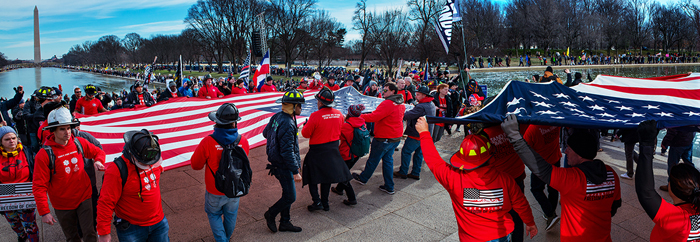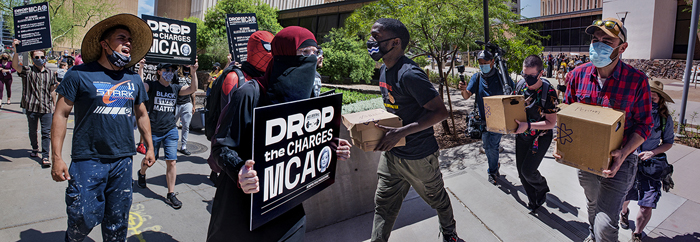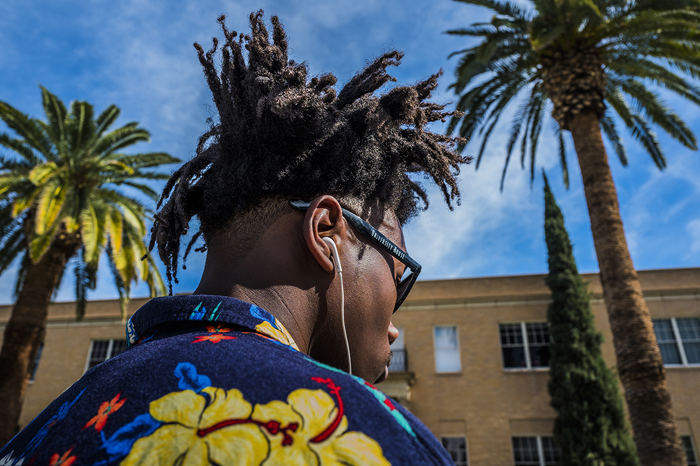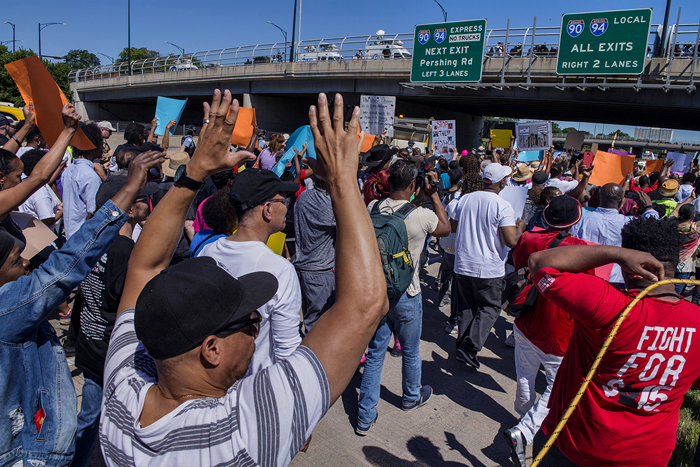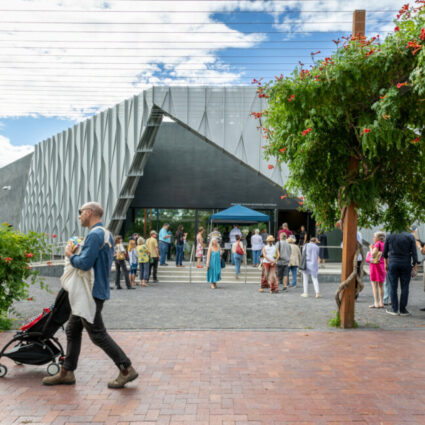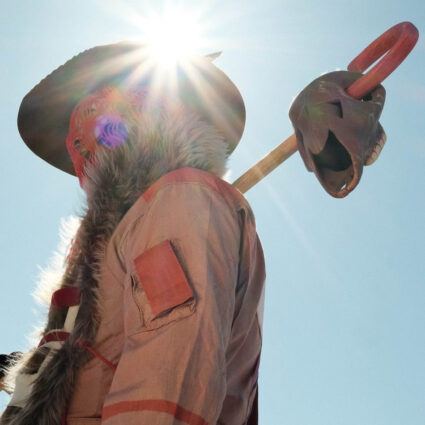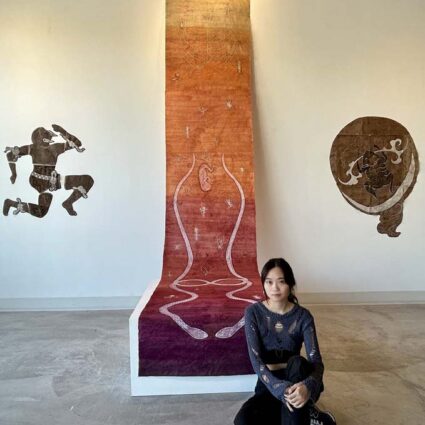As midterm elections loom, Stephen Marc, an Arizona-based photographer and Guggenheim fellow, explores what protests reveal about the American psyche in An American Journey Continues.
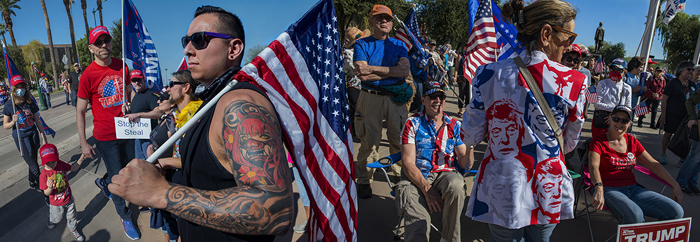
PHOENIX—Photographer Stephen Marc has spent years moving through protests across the nation, experiencing the outrage sparked by topics such as abortion, guns, immigration, policing, vaccinations, and voting rights.
Now, Marc is showing works that plumb the depths of our collective psyche, just as the country nears midterm elections that could have significant consequences for the direction the United States takes moving forward.
Marc’s photographic choices are informed by his own experiences as a Black man born and raised in Chicago, and who has also spent many years living in Arizona, the state where gubernatorial candidate Kari Lake heads a list of extremist candidates and election deniers.
“When Obama was elected, some people got excited expecting a post-racial era,” Marc recalls. “I knew we had to be ready for a backlash, but I never would have expected it to be this extreme and continuous in terms of dividing our country.”
“It’s very important to have Stephen’s perspective as an African American man in the United States in this particular moment,” adds Rebecca Senf, chief curator for the Center for Creative Photography at the University of Arizona in Tucson, which has collected eighteen photographs by the 2021 Guggenheim fellow.
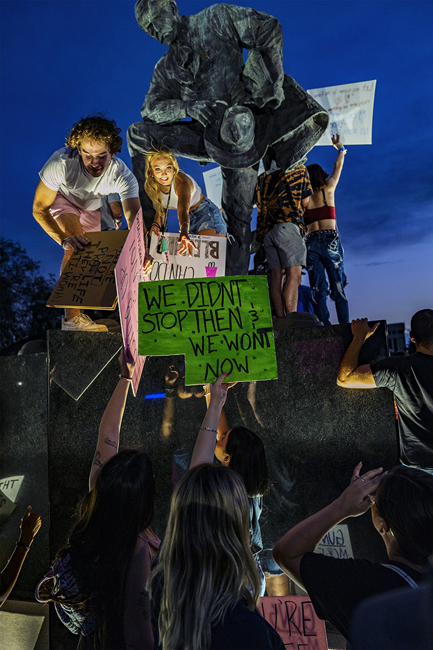
“Stephen takes his constant investigation of Black culture in the U.S. and puts it in the larger context of American culture,” says Senf. “He thinks about Black culture in relation to other marginalized communities within a dominant culture.”
About seventy-five of Marc’s images are on view in An American Journey Continues, an exhibition curated by Elizabeth Allen for Northlight Gallery in Phoenix, where Marc is conducting an artist talk today, November 4, 2022, at 6:30 pm MST. The show continues through November 19.
Most of the images were taken during the last decade, but several sample a wider swath of Marc’s extensive oeuvre. Some transport viewers into the solitary and crowded moments of movements from Black Lives Matter to Stop the Steal, while others spotlight more quotidian events such as festivals, parades, and county fairs.
In recent years, he’s seen changes that suggest a shift in the American psyche. “I think it was when the pandemic kicked off, and there was an increase in social justice protests,” says Marc.
Instead of encountering both protesters and counter-protesters demonstrating in the same public space, he’d often see people who shared the same views reinforcing their own perspectives. That meant fewer interactions between people who disagreed with one another, and reduced opportunities to develop mutual respect or understanding.
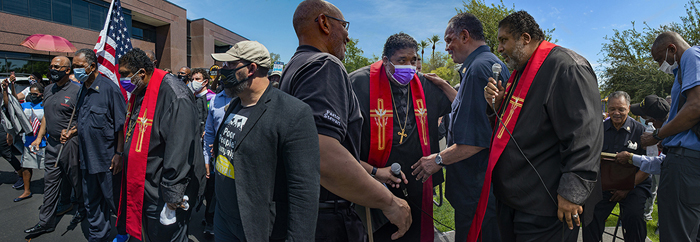
“I’ve heard some intense conversations,” says Marc about his years covering protests and social upheavals. “Some ended in handshakes or hugs.”
For much of the pandemic, Marc concentrated on events close to home, even as he considered their wider context. “Arizona is a battleground state, and a lot of what happens here relates to focal points in other parts of the country,” he says.
How Marc’s work evolves moving forward will depend in part on how the American political landscape transforms in coming weeks. “We’re at another major turning point with the midterm elections,” he says. “I’m with everybody else, waiting to see what happens.”
